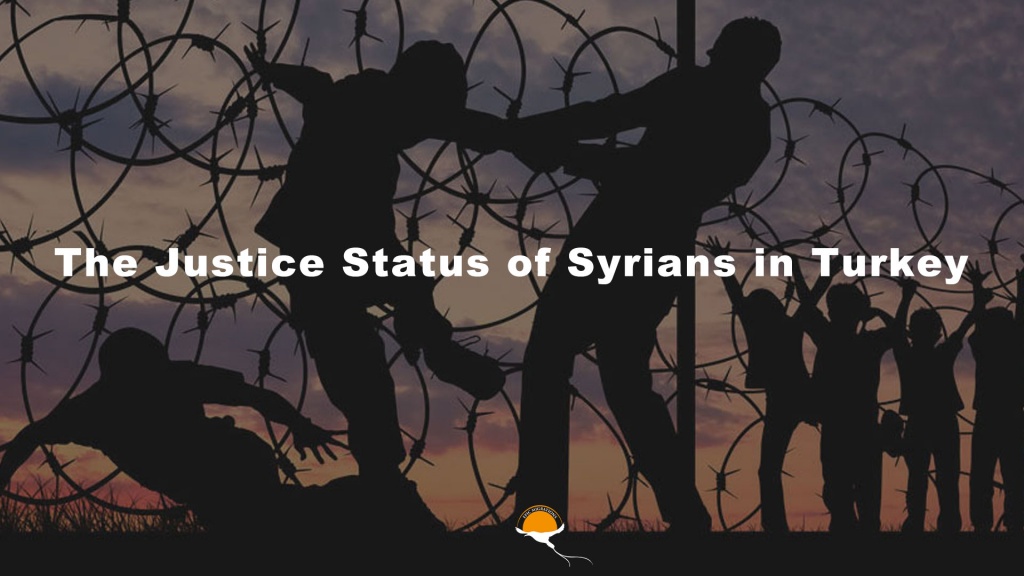Betül Çam
Migration is a phenomenon that occur with desire of people to attain better financial, religious, social or politic conditions. In fact, it continues one’s existence since beginning of the humanity. When observe past and today, there are movements of migration that chance the course of history. Nowadays, that is, in the 21st century, the concept of migration is encountered more frequently in daily life with changing and globalizing word.
Turkey exposed many time migrations from neighboring countries in throughout history. These migrations sometimes occur neatly under the control of government but sometimes it occurs illegal ways. Now Turkey encountered a lot of migration wave by reason of some actions in Syria of late. The humanitarian crisis that emerged after the civil war that started in Syria on March 15, 2011 has displaced millions of people. Faced with life-threatening danger, Syrians first entered Turkey on 29 April 2011 through the Cilvegözü border gate in Hatay. As a result of this policy that has been going on for years, the current number of Syrians in Turkey has reached 3 million 710 thousand. At the beginning of the immigration from Syria, it was thought that the Syrians who took refuge in Turkey would stay temporarily and would return to their countries with the end of the civil war. For this reason, Syrians be defined as “guest” which means nothing justice. However, in the process of time Syrians usually accepted as refugee and still they accepted as refugee. But this term is wrong for the justice status of Syrians. This wrong bring along a lof of misinformation and questions.
The refugee definition, especially in media, use mostly for Syrians. Refugee status is the justice status defined that people who are in danger of being persecuted in their country because of their race, religion or political opinions, or who are worried about it, and who leave their country for this reason and do not want to return, according to Geneva Convention. At the same time, if a person in a country as a refuge means that accepted asylum application and person has a lot of rights and independences. Much as seems like this term using is appropriate for Syrians, in Genova Convention, 1951, Turkey accepted just European Refugee. Therefore, it would be legally wrong to call the status of Syrians in Turkey refugees.
The legal status of Syrians, who had to take refuge in our country en masse due to the civil war, was defined as “temporary protection” with the Temporary Protection Status Regulation published in the Official Gazette on October 22, 2014. Accordingly, states that provide protection cannot return persons who have taken refuge in their countries; They are obliged to open their borders and to ensure basic human rights such as life security. On the other hand, temporary protection does not grant the right to directly apply for a long-term residence permit and nationality in the country they reside in. This status provides protection only in terms of basic human rights.
When comparing the Refugee and Temporary Protection Status, it is seen that there are great differences between them. These differences are not negligible both for Turkey, which has opened its country to refugees/asylum seekers, and for Syrians who have to take refuge in another country. Although it seems similar in terms of basic human rights, this distinction is important especially for the future of asylum seekers-refugees in the country. This situation, which is expressed incorrectly in social media, in news bulletins or by politicians, contributes to the development of hate speech by causing speculation among the public. Considering that 3.7 million Syrians live in Turkey, this situation has the potential to cause problems in terms of social peace and future. In order not to cause this situation, this issue should be approached more sensitively and misinformation should be prevented.
REFERENCES
Topal, A. H. (2015). Geçici koruma yönetmeliği ve Türkiye’deki Suriyelilerin hukuki statüsü. İstanbul Medipol Üniversitesi Hukuk Fakültesi Dergisi, 2(1), 5-22.
Geçici Koruma Yönetmeliği. 22/10/2014. Resmi Gazete. (Soru: 29153). https://www.resmigazete.gov.tr/eskiler/2014/10/20141022-15.htm
Adıgüzel, Y. (2020). Göç Sosyolojisi. (4). Ankara:Nobel Yayınevi

